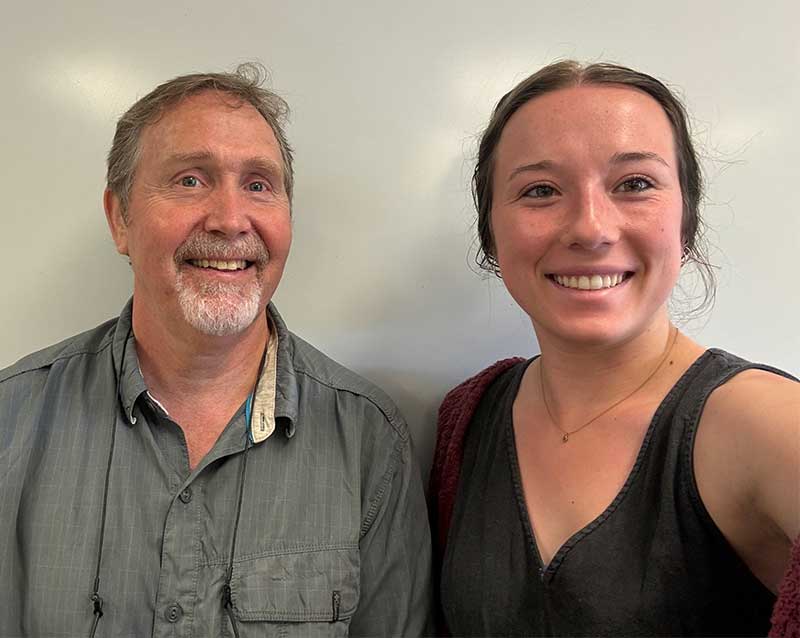Political Science Research
Political Science Research
May 2024 - May 2025
The War on Ukraine: An Analysis of Refugee Treatment
Grace Wilson
 This study will examine the treatment of Ukrainian refugees. Since the illegal invasion
of Ukraine by Russia in February of 2022, one in four Ukrainians have been forced
to flee their homes and have become either refugees or IDPs (internally displaced
persons). This research looks at the changing nature of support for Ukrainian refugees
from the beginning of the war to present. Data will come from the cases of refugees
in Poland, Germany, and elsewhere (depending on what the data illuminates). Crucial
to this research is International Humanitarian Law, specifically the ‘refugee regime’.
This entails a careful review of refugee laws and the enforcement thereof. At issue
is the tension between state behavior and international laws and norms. Additionally,
the dynamics between the refugees and their host populations will be examined. The
expected product is a carefully documented thesis paper.
This study will examine the treatment of Ukrainian refugees. Since the illegal invasion
of Ukraine by Russia in February of 2022, one in four Ukrainians have been forced
to flee their homes and have become either refugees or IDPs (internally displaced
persons). This research looks at the changing nature of support for Ukrainian refugees
from the beginning of the war to present. Data will come from the cases of refugees
in Poland, Germany, and elsewhere (depending on what the data illuminates). Crucial
to this research is International Humanitarian Law, specifically the ‘refugee regime’.
This entails a careful review of refugee laws and the enforcement thereof. At issue
is the tension between state behavior and international laws and norms. Additionally,
the dynamics between the refugees and their host populations will be examined. The
expected product is a carefully documented thesis paper.
Faculty Advisor: Dr. Roger Durham, Political Science
Funded by: Aquinas College Summer Scholars Program
May 2023 - May 2024
Neo-Nationalism, Religion, and Authoritarianism: The Case of Putin’s Russia
Grahm Staib
 Russia invaded Ukraine on February 24, 2022. The language and justifications used
by Russian President Putin in his speeches and writings are grounded in the long-held
“Russian World” doctrine that holds that Ukraine belongs to the greater Russian sphere.
This is justified by the argument that Kyiv - being the site of the Baptism of the
Rus’ - is foundational to the beginning of Russian Orthodoxy. Thus the war has been
justified along ethno-religious lines, suggesting that Putin’s geopolitical goals
are in concert with that of Russia’s official church, which seems to be backing the
actions of the Putin regime in Ukraine. This research will investigate the historical
relationship between the Putin regime and the Russian Orthodox Church as it relates
to the war in Ukraine.
Russia invaded Ukraine on February 24, 2022. The language and justifications used
by Russian President Putin in his speeches and writings are grounded in the long-held
“Russian World” doctrine that holds that Ukraine belongs to the greater Russian sphere.
This is justified by the argument that Kyiv - being the site of the Baptism of the
Rus’ - is foundational to the beginning of Russian Orthodoxy. Thus the war has been
justified along ethno-religious lines, suggesting that Putin’s geopolitical goals
are in concert with that of Russia’s official church, which seems to be backing the
actions of the Putin regime in Ukraine. This research will investigate the historical
relationship between the Putin regime and the Russian Orthodox Church as it relates
to the war in Ukraine.
Faculty Advisor: Dr. Roger Durham, Political Science
Funded by: Aquinas College Summer Scholars Program
May 2022 - May 2023
Addressing Climate Change: An Analysis of the Impact of Local Governance
Aidan Raffaele
In the last 30 years, the existential threat of climate change has increasingly drawn the attention and concern of governments at every level. As public awareness of the existence and severity of the issue has grown, so too have the responses of various governments and intergovernmental bodies; the UN has facilitated and encouraged participation in various treaties such as the Kyoto Protocol and the Paris Accords, the Biden administration has pledged a drastic increase in wind energy capacity, and various state governments are offering incentives for options like solar energy. In the last 10 years, however, cities are emerging as perhaps the most effective agent of change in addressing this global issue. Ergo, this research focuses on city governments and their climate change policies and practices. Our plan is to compare and evaluate the success of city-level environmental policies to various factors such as retention of college graduates or voter participation to find if there are certain factors that give cities a predisposition for effective climate policy, and to find potential changes that city governments can make that will in turn lead to more success in this area.
Funded by: Aquinas College Summer Scholars Program
May 2021 - May 2022
Responsibility to Protect: 15 Years of Patterns of Behavior
Mathew Maloney
Of many competing trends in international relations, two stand out - and are at the heart of this research. The first is ongoing warfare and conflict, disintegration, nationalism, violations of international law, unilateralism, and crimes against humanity. Recent examples of this include “Balkanization,” Brexit, the on-going war in Syria, Russian invasion of Crimea and Donbass, and the more recent war between Armenia and Azerbaijan over Nagorno-Karabakh. The second - and diametrically opposed trend - is often seen as a reaction to the first. It includes the increasing movement toward cooperation, integration, trans-nationalism, international law, multilateralism, and support for the human condition. Examples of this dynamic include all of the cooperative movements of the United Nations (including an increasing use of Peace-Keeping Operations), integrative efforts such as the European Union (where even the French and Germans share a currency), agreed upon Laws of War, War Crimes Tribunals, and efforts to end human rights violations. This study deals with the tensions between these two contending international dynamics. The tension between these two trends generates patterns of behavior between states. Using these patterns we hope to establish findings that can predict future state behavior.
Faculty Advisor: Roger Durham
Funded by: Aquinas College Summer Scholars Program
May 2020 - May 2021
Democracy, Identity, and Existential Threat
Tessa Schutt
In recent decades, theorists of deliberative democracy had hoped to help people reconstruct their identities and interests to be more inclusive, empathetic and compatible with a diverse political world. Instead, identities and disagreements appear to be hardening and resisting reconstruction. The possibility of compromise or a middle ground is rejected by many across the political spectrum in favor of candidates who champion dramatic change. Disagreements over policies and candidates seem more frequently to be matters of existential threat -- challenges to the core of who people are. Identity politics, once thought to be a fading holdover from the social movements of the 1960s, has re-emerged in new ways. The purpose for conducting research on this topic is to better understand how identity and disagreement are working in the current political culture, and what role identity is playing (if any) in support for or against particular political candidates. Given the intensity of disagreement around political figures among both political parties, and expectations about who “should” support various candidates, the current electoral landscape offers a rich opportunity to explore how identity and disagreement are currently working together
Faculty Advisor: Dr. Molly Patterson
Funded by: Aquinas College Summer Scholars Program
May 2017 - May 2018
The Correlation Between Political Knowledge and Efficacy
Zachary Isaacs
Political efficacy is the feeling that one can have and does have power in politics. Efficacy has been a well researched topic for nearly half a century, however, no correlation has ever been studied between it and political knowledge. This study is being conducted with a survey to a broad range of people in different locations in the Kalamazoo area to see whether there is a relationship between being knowledgeable about politics and feeling able to be effective in the political arena. The results of this study could give valuable insight into ways in which different segments of the public view the government and their role in it.
Faculty Advisor: Dr. Molly Patterson
Funded by: Aquinas College Summer Scholars Program